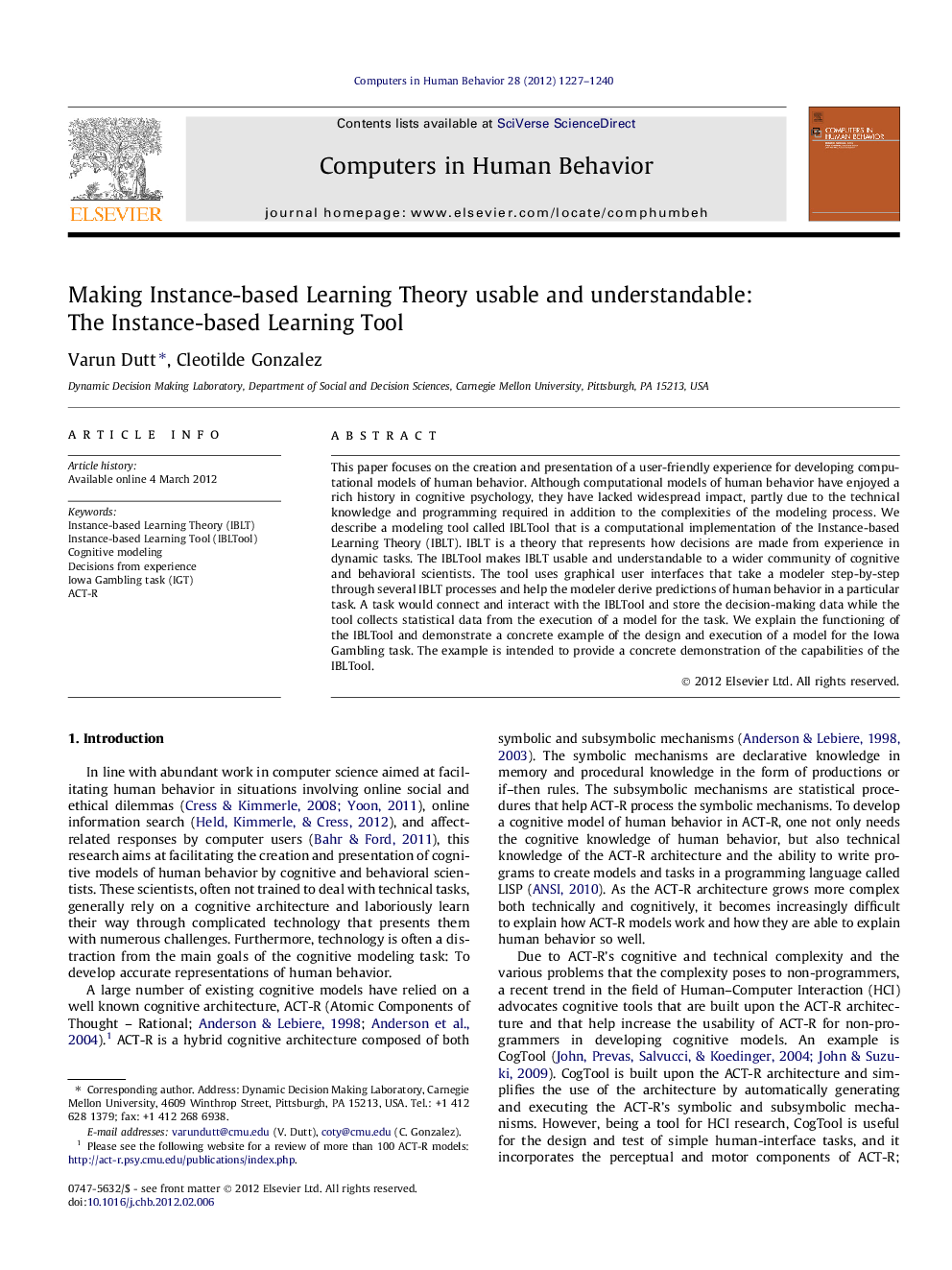| Article ID | Journal | Published Year | Pages | File Type |
|---|---|---|---|---|
| 351383 | Computers in Human Behavior | 2012 | 14 Pages |
This paper focuses on the creation and presentation of a user-friendly experience for developing computational models of human behavior. Although computational models of human behavior have enjoyed a rich history in cognitive psychology, they have lacked widespread impact, partly due to the technical knowledge and programming required in addition to the complexities of the modeling process. We describe a modeling tool called IBLTool that is a computational implementation of the Instance-based Learning Theory (IBLT). IBLT is a theory that represents how decisions are made from experience in dynamic tasks. The IBLTool makes IBLT usable and understandable to a wider community of cognitive and behavioral scientists. The tool uses graphical user interfaces that take a modeler step-by-step through several IBLT processes and help the modeler derive predictions of human behavior in a particular task. A task would connect and interact with the IBLTool and store the decision-making data while the tool collects statistical data from the execution of a model for the task. We explain the functioning of the IBLTool and demonstrate a concrete example of the design and execution of a model for the Iowa Gambling task. The example is intended to provide a concrete demonstration of the capabilities of the IBLTool.
► Cognitive models are popular but lack impact as modeling behavior is complex. ► We detail a modeling tool, IBLTool, based upon Instance-based Learning Theory (IBLT). ► IBLTool makes IBLT usable and understandable to cognitive and behavioral scientists. ► We demonstrate an example of a cognitive model for the Iowa Gambling task in IBLTool. ► The model provides a concrete demonstration of the capabilities of the IBLTool.
